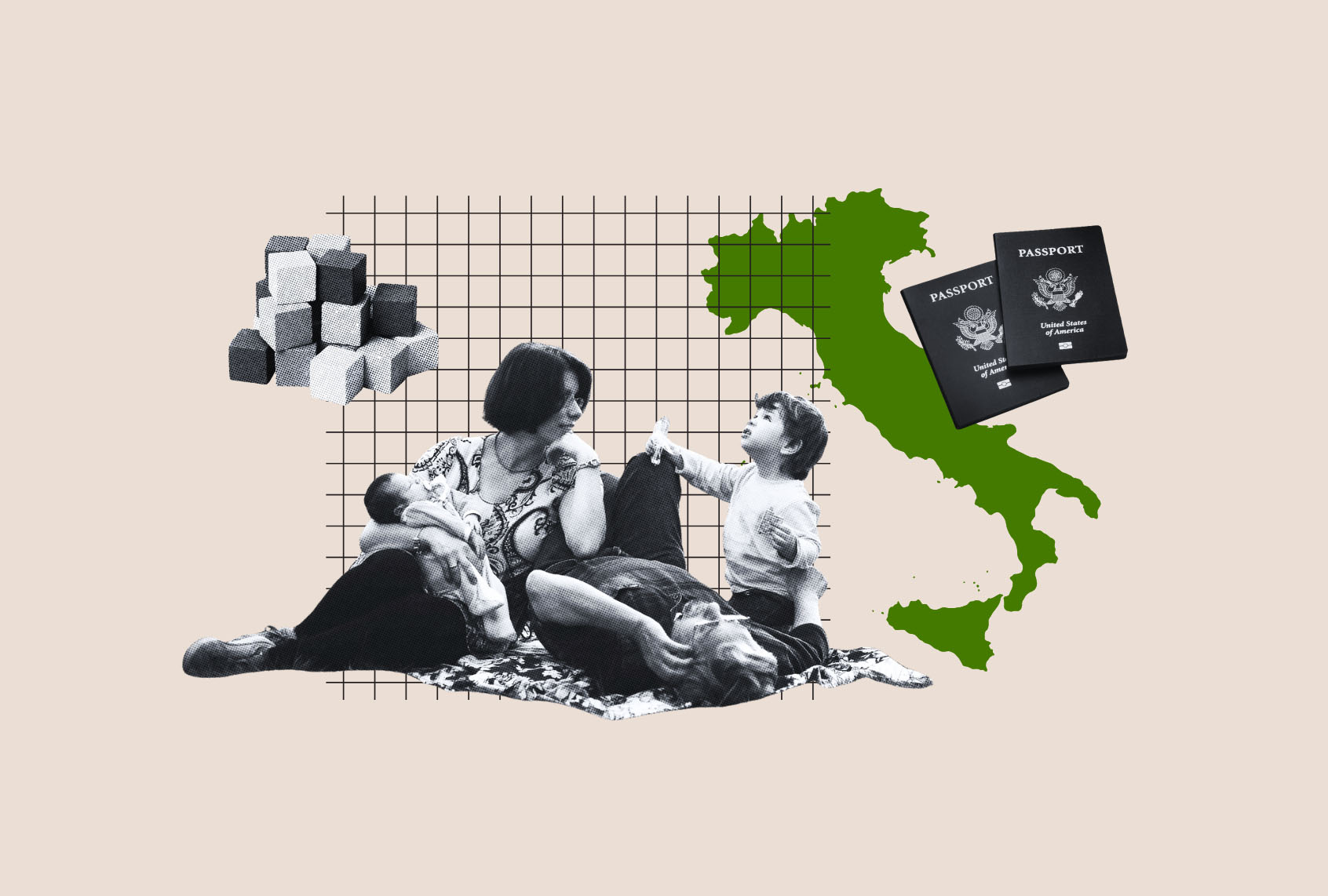Parenting in America is hard. Italy showed me another way

The other day, while catching up with an American mom in Italy, she told me about her friend in Los Angeles who got kicked out of a restaurant. It wasn’t because she was drunk or couldn’t afford to pay the bill. A restaurant worker asked her to leave because her toddler was having a meltdown, apparently disturbing other customers.
I gasped, but internally, I wasn’t surprised. When I lived in California, dining out often felt like a precarious endeavor. It always seemed like my toddler had to have perfect behavior if we wanted to be welcomed back to that restaurant. We knew which restaurants were “family-friendly” and which ones it just felt inappropriate to bring a tiny little human after 5 p.m. After talking to my friend, it quietly dawned on me how my experience of motherhood is changing since moving to Italy over a year ago — and how the structural and cultural issues that defined my early experience as a mom feel more distant and unrelatable.
In many ways, my family’s move to Italy was borne out of our discontent as parents in America. While I was grateful for my maternity leave, I didn’t feel completely ready to return to work after four months. As the parent who provided health benefits for our family, working part-time wasn’t an option in a country without universal health care. Then there was the cost of childcare.
After the COVID-19 pandemic, many infant rooms in daycare centers closed near our house. The closest one would have been a 30-minute drive each way. The only suitable alternative was to hire a part-time nanny, which cost me about $2,200 a month. On days she was unavailable, I had my mom, who was still working, drive over and help. Every day felt like a constant puzzle to solve. In Europe, I’m no longer forced to do such mental math.
The differences extend beyond policy and economics. They’re cultural, rooted in the way Italian society values caretakers and children here.
Before becoming a mom, I felt like I only heard about how hard it was to be a parent in America. It was on my mind so much that I publicly asked the question: Was this the worst time in history to be a mom in America? Historians told me it wasn’t a great time, but it also wasn’t the worst time. That Americans’ experience of motherhood has always, and still does, depend on factors like race and class. Yet today, many moms say it feels “almost impossible” to be a mother in America, especially in an economy where families are paying 25% more for groceries than they were before the pandemic and childcare costs can eat up to a fifth of a family’s income.
In the middle of my exhaustion, my spouse, who has dual Italian-American citizenship, suggested something radical. What if we relocated to Italy, a country known to be more family-friendly? It felt a little crazy, and still does. But since we’ve moved, motherhood in many ways has felt a bit easier.
I feel almost guilty sharing my childcare bill with friends back home: 220 euro a month, roughly $255. We also have access to the country’s public health care system. These two changes alone have significantly transformed my everyday life as a mom, especially since I gave birth to my second and experienced postpartum care here.
Start your day with essential news from Salon.
Sign up for our free morning newsletter, Crash Course.
But the differences extend beyond policy and economics. They’re cultural, rooted in the way Italian society values caretakers and children here. In everyday life, I feel supported as a mother in the smallest ways. When I go out with my baby and toddler, they’re adored. Strangers smile at them, ask their names, and tell them how adorable they are. If I’m struggling to lift a stroller up the stairs, or I’m juggling a crying baby and a hungry toddler, there is always someone there to offer me a hand.
I’ve had strangers hold my baby while I dig through my purse. I’ve been ushered to the front of checkout lines simply because I have kids with me. The worry of being kicked out of a restaurant because my kids are acting out has never crossed my mind. In fact, if one of them is unhappy, usually someone is happy to jump in and make a distracting silly face. I’ve even had restaurant workers hold my baby while I eat.
Living in Italy has made me wonder what it would mean to be a mother in a culture that actually cares — not just in policy, but in the everyday gestures of life. And what would it look like if America valued mothers?
That’s not to say being a mom in Italy doesn’t come without challenges. Italian moms definitely have their own struggles: long waits for public services, rigid gender expectations, low salaries and long school holidays. When we talk, they don’t hide the fact that they’re tired. The exhaustion of a baby not sleeping or being a mom to a toddler and an infant is a universal experience.
But here, being a mother doesn’t have to mean being in a constant state of being worn down because societal structures are continuously working against you. Here, motherhood is seen as a shared act by the community, not a private burden. It can also mean being cared for — by a culture that still believes kids belong in public, and that no one should have to parent alone.
Read more
about parenting
